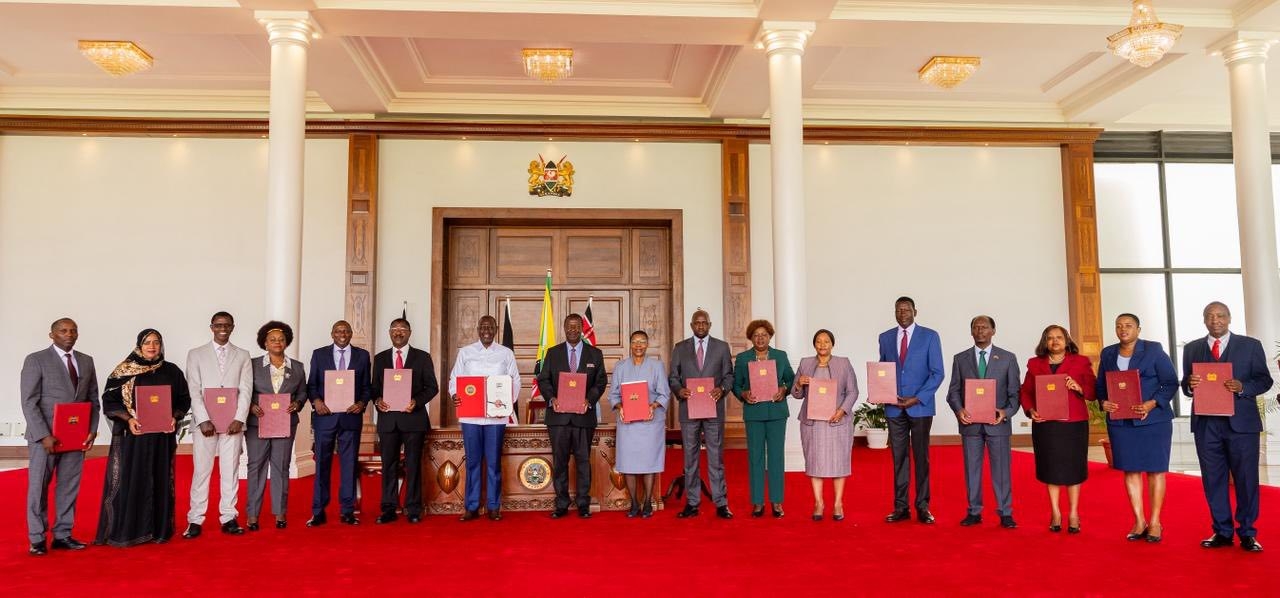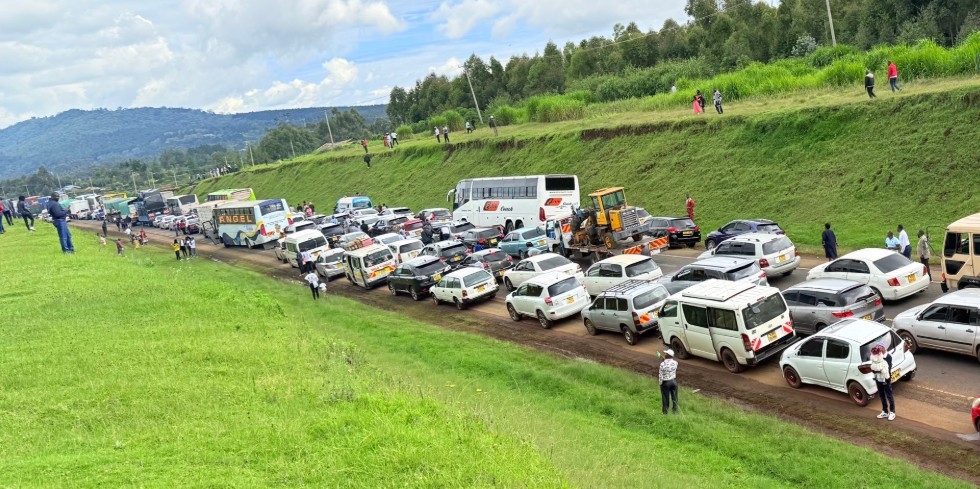The United Nations Security Council on Monday, October 2, approved a yearlong multinational security mission for Haiti, led by Kenya, to crack down on rampant gang violence that has unravelled life for many in the Caribbean nation.
The 15-member Council voted to authorize a mission that would guard critical infrastructure such as airports, ports, schools, hospitals and key traffic intersections.
They will also carry out “targeted operations” along with the Haitian National Police.
Kenya has pledged at least 1,000 police officers, and several other nations are expected to offer other resources.
Nearly 3,000 people were killed in Haiti from October last year until June, as gangs took over large patches of the country, particularly Port-au-Prince, the capital, according to the United Nations.
Many neighbourhoods have cleared out as people have fled widespread murders, kidnappings and extortion.
Reports suggest gangs aligned with political parties have strengthened their grip on the country since the 2021 assassination of President Jovenel Moise.
No municipal, legislative or parliamentary elections have been held in years, creating a power vacuum.
Officials said one goal of the Kenyan-led mission is to create the conditions for a safe election.
Kenya will now deploy its force to Haiti by January 2024.
The Council voted 13 in favour of the resolution, with Russia and China abstaining.
Haiti’s foreign minister, Jean Victor Généus, called the resolution a “glimmer of hope” for people who have been suffering too long.
“This is more than a simple vote,” he said.
“This is, in fact, an expression of solidarity with a population in distress.”
US Secretary of State Anthony Blinken applauded the vote.
“We applaud the UN Security Council’s authorization of a Multinational Security Support mission to Haiti – a pivotal step in providing the international support Haiti requested to restore security. We thank Kenya and Ecuador for their strong partnership in this effort,” he said after the vote.
Russia and China’s abstentions suggested that neither country endorsed the resolution but they were not going to block it.
Diplomats said that negotiations had been tense with the two countries for several weeks, with the text being rewritten multiple times, but that, ultimately, a consensus was reached.
Russia’s U.N. ambassador, Vasily A. Nebenzya, said that although Russia did not have any objections “in principle,” the resolution was “rushed” and “shortsighted.”
The idea for the Security Council to authorize deploying a multinational force to Haiti was proposed by António Guterres, secretary general of the United Nations, in the aftermath of the breakdown of law and order in the country and gangs’ taking over ports and fuel depots, the U.N. spokesman, Stéphane Dujarric, said on Monday.
Unlike a U.N. peacekeeping mission, where the blue-helmeted forces are under the control of the U.N. Department of Peace Operations, the multinational force in Haiti will be overseen by Kenya, although its forces are there with U.N. authorization, which gives the intervention the backing of international law.
It is unusual for the Security Council to authorize multinational or third-country forces to enter a conflict.
Kenya did not require the U.N. vote but had said it would not proceed without international backing.
The Biden administration has pledged $100 million (Sh14.5 billion) to the mission and another $100 million (Sh14.5 billion) from the Defense Department in the form of intelligence, airlifts, communications and medical assistance.
About a dozen countries said they would join the mission, including Jamaica, Barbados, Antigua and Barbuda.
Haiti’s prime minister, Ariel Henry, had urged the international community to take action a year ago.
Past U.N. missions to Haiti have ended in more misery: A years-long peacekeeping force, authorized in 2004, brought cholera to the country more than a decade ago, killing more than 9,000 Haitians.
Human rights groups said many U.N. soldiers fathered babies and abandoned them.
Kenya's Permanent Representative to the United Nations Martin Kimani, told the Council that his country would collaborate closely with Haiti’s allies and the other nations in the Caribbean.
“We now invite member states to contribute as active participants, providing personnel, funds, vital equipment and logistical support to the multinational security support mission,” Kimani said Monday.
The current proposal, which was co-sponsored by the United States and Ecuador, calls for strong human rights protections, with an oversight mechanism to prevent abuses, especially sexual exploitation.
U.N. diplomats said that negotiations to pass the resolution started in late August after Kenya came forward to lead the mission.
It took weeks of intense talks to get China and Russia on board after they formed a unified front opposing two major parts of the resolution.
A key factor in getting Russia and China on board was Kenya’s leadership of the force and an overall desire at the Council to be more responsive to African voices and demands, diplomats said.
The support for the resolution from Caribbean countries added more momentum.
Russia and China wanted a six-month mandate instead of a year, which American, European and other members of the Council rejected, saying it would set up the enterprise for failure because it would not give the Kenyan forces enough time to turn things around, diplomats said.
The passing of the resolution at the Council is noteworthy given the deepening divisions among the permanent five members the United States, Britain, France, China and Russia since the war in Ukraine started.
The Council has been unable to act to stop the aggression in Ukraine because of Russia’s veto.












